Often perceived as mysterious creatures of the night, bats have intrigued and captivated human imagination for ages. In Hinduism, these enigmatic beings carry unique symbolic meanings, with their presence in dreams potentially offering valuable insights into the dreamer’s life and spiritual journey. This exploration of bat symbolism in Hinduism and their role in dreams delves into the religious and cultural significance of these creatures, while also shedding light on how one’s bat dreams can provide inspiration for personal growth and enlightenment.
Symbolism of Bats in Hinduism
Bats are often seen as symbols of darkness, transformation, and intuition in Hinduism. These nocturnal creatures live in the shadows and are capable of navigating in complete darkness using their unique echolocation abilities. As such, they are considered to be creatures that dwell in both the material and spiritual realms, possessing the ability to adapt and navigate between these two worlds.
In Hindu mythology, bats are associated with various gods and goddesses, often serving as their messengers or representatives. One example is the goddess Chamunda, a potent and terrifying aspect of the Divine Mother, who is often portrayed with bats surrounding her, symbolizing darkness and the need to confront one’s fears. Another example is the goddess Kali, the embodiment of feminine power and transformation, often depicted with bat-like wings. The connection between these goddesses and bats underscores the importance of embracing the mysterious and hidden aspects of life and recognizing the wisdom and transformation that can emerge from darkness.
As creatures of the night, bats are also believed to possess intuitive and psychic abilities. This is due to their skill in echolocation, which allows them to perceive and navigate the unseen world with remarkable precision. In Hinduism, the concept of intuition is closely linked to spiritual awakening, and the bat serves as a symbol of this extraordinary inner power. By trusting in one’s inner guidance and intuition, one can journey through the darkness and emerge into the light.
In dreams, the appearance of a bat may represent a call for transformation or a reminder to tap into one’s inner wisdom and intuition. Like the bat, the dreamer is encouraged to navigate through the darkness and confront the unknown to grow spiritually and personally. The bat also serves as a reminder that we are not limited to the physical world but possess the ability to transcend our material existence and explore the spiritual dimensions of life.
Bats, in Hinduism, hold a unique intersection of life, death, and rebirth due to their connection to the cycles of existence. Caves, where bats dwell, symbolize both the womb and the afterlife, ultimately representing the cyclical nature of creation and reincarnation. This connection reminds us of the importance of embracing change and transformation throughout our life’s journey.
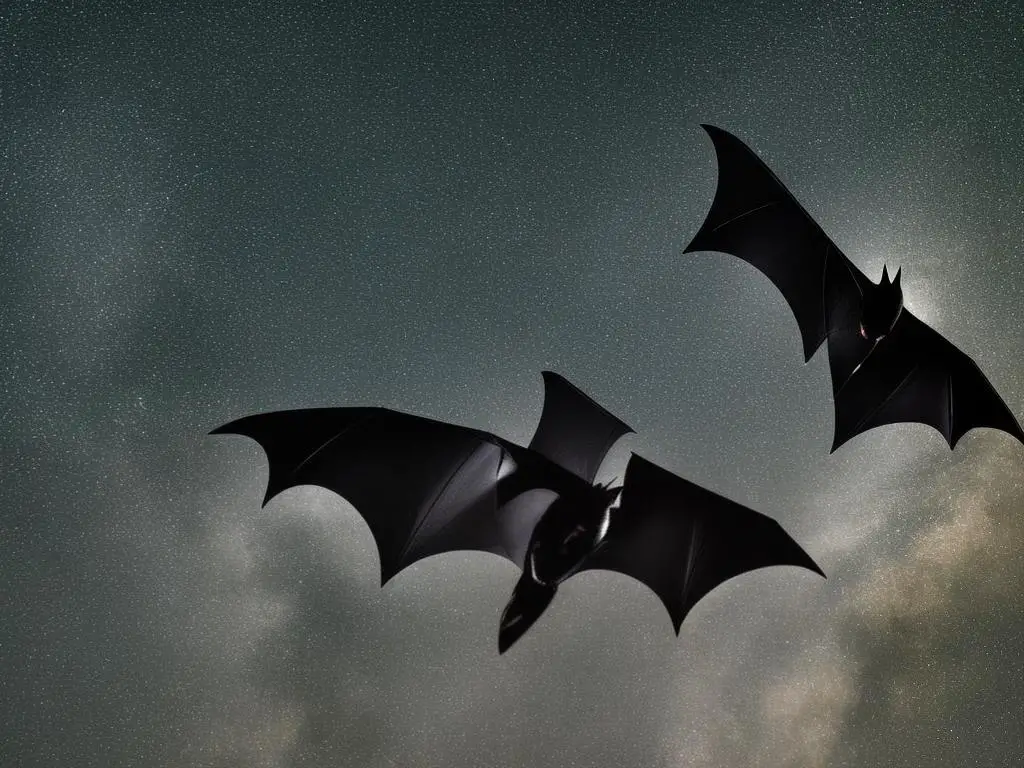
Types of Bat Dreams and Their Meanings
Dreams are considered to hold significant meaning and symbolism in Hinduism, with specific elements representing various aspects of an individual’s life. Bats are one such intriguing element, carrying both positive and negative connotations in Hindu mythology, depending on the context and nature of the dream. Therefore, dreams involving bats can have multiple interpretations, reminding us of the complex symbolism embedded in Hindu beliefs.
Possible Bat Dream Scenarios
One possible scenario for a bat dream could be the presence of multiple bats in the dream. In Hinduism, bats are symbols of transition and transformation, often associated with the importance of letting go of the old and embracing new beginnings in life.
Another type of bat dream could involve flying with bats. This dream could indicate that the individual is experiencing a feeling of liberation from constraints and the freedom to explore new opportunities. Additionally, this dream could also represent a journey into the unknown, with bats being considered guides to the inner self, capable of providing wisdom and knowledge.
Dreams of bats speaking or carrying messages may signify that the dreamer is receiving guidance or insight from their subconscious or higher self. Bats are associated with intuition, and thus a talking bat in a dream might be revealing something hidden within the dreamer’s mind or calling attention to a problem that needs resolution.
Alternatively, bats in Hinduism have negative connotations as well; they are also associated with misfortune, darkness, and mystery.
If bats are seen as omens of impending danger, the dreamer might want to consider taking precautions or reevaluating their current life choices.
Deciphering Bat Dreams in Hinduism
Bat dreams in Hinduism can carry various interpretations with both positive and negative meanings. Positive implications include transformation, liberation, and intuition, while negative connotations can be associated with misfortune and unresolved issues.
By examining the context of the dream, an individual can interpret the messages offered by these intriguing nocturnal creatures. This understanding can provide clues for personal growth, as well as insights into potential obstacles faced throughout one’s life journey.
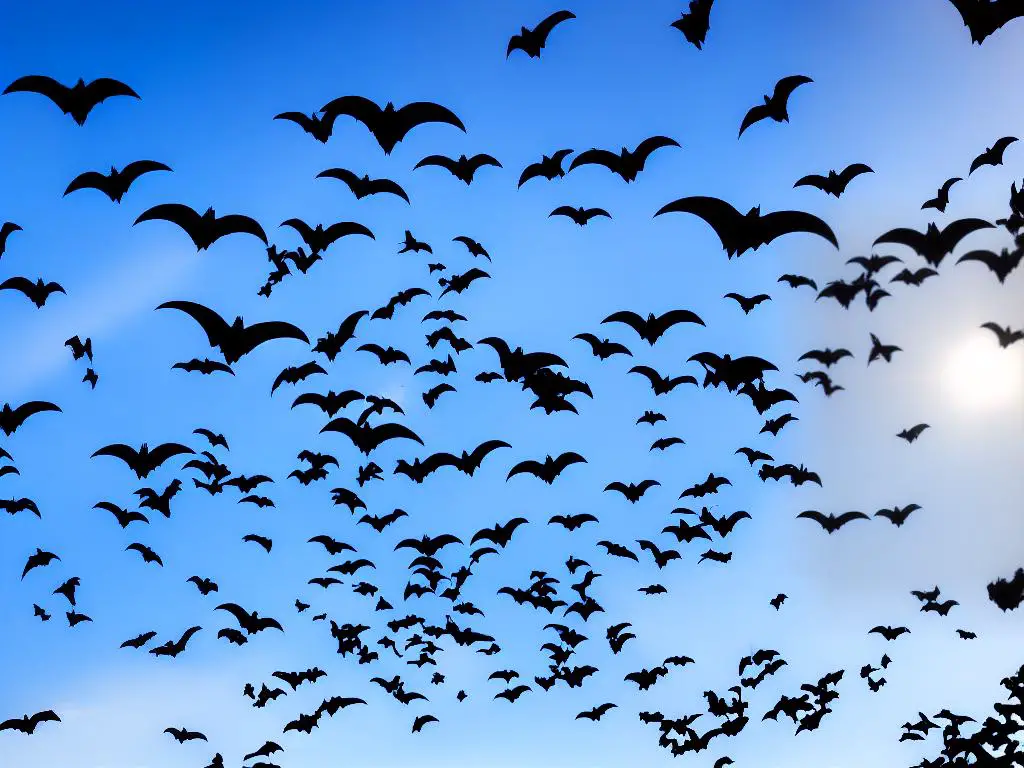
Factors Influencing Bat Dream Interpretations
Dreams and Bats within Hinduism
In Hinduism, dreams hold great importance as they offer insights into one’s subconscious mind and convey spiritual messages. Bats in Hindu dreams can symbolize a variety of interpretations and meanings, which can be influenced by several factors at play within the dream.
The Role of Emotions
The dreamer’s emotions during the dream are a key factor in determining the meaning of a bat in dream Hinduism.
The Context of the Dream
Another determining factor is the overall context of the dream. The actions of the bat within the dream also play a part in determining its meaning.
Other Symbols and Personal Beliefs
When interpreting a bat dream in Hinduism, it is essential to consider the presence of other symbols or characters within the dream. These additional elements can provide further insight and nuance to the dream’s meaning. Moreover, the dreamer’s personal beliefs and experiences play a crucial role in their understanding and interpretation of the bat dream.
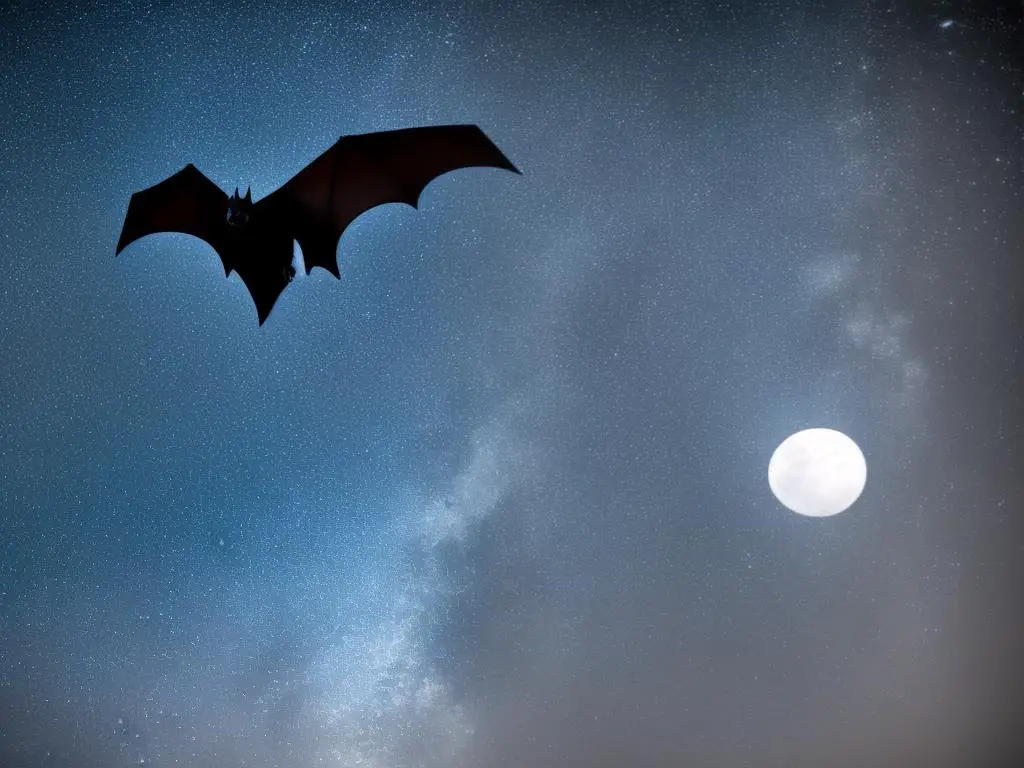
Connecting Bat Dreams with Hindu Beliefs and Practices
Dreams carry significant weight in Hinduism, as they are thought to be a reflection of an individual’s deeper thoughts, emotions, and spiritual state. Dreams are believed to be indicative of one’s karma, the accumulated result of past actions, and dharma, which represents the pursuit of spiritual growth, righteousness, and the fulfillment of moral duties in life. By examining dreams, individuals can gain valuable insights into their spiritual journey and overall well-being.
Bats in dreams are often associated with notions of change and transformation. They represent the unconscious mind and the instinctive forces within us. Thus, dreaming of a bat symbolizes a deep inner transformation and the need to confront one’s own hidden instincts and desires in the light of Hindu beliefs.
In relating bat dreams to Hinduism, one can look at the concept of karma and the impact it may have on an individual’s spiritual journey. By seeing bats in a dream, one might be alerted to the necessity for introspection and reassessment of past actions.
The idea of spiritual transformation in dreams is a concept that connects with dharma. The bat in a dream can signify the transformation needed to pursue one’s dharma, as it depicts the death and rebirth process necessary for breaking free from the confinements of illusion and ignorance.
Connecting bat dreams to spiritual development in Hinduism brings forward the importance of looking within oneself to explore the mysteries of the subconscious mind.
Moreover, bat dreams can act as a catalyst for personal growth within one’s Hindu spiritual journey.
By looking inward and facing one’s true nature, it becomes possible to achieve greater spiritual progress and fulfillment.
The symbolism of bats in dreams holds powerful meanings and can be seen as an invitation to explore one’s spiritual journey, unlocking the mysteries of the self to achieve a sense of wholeness and harmony.
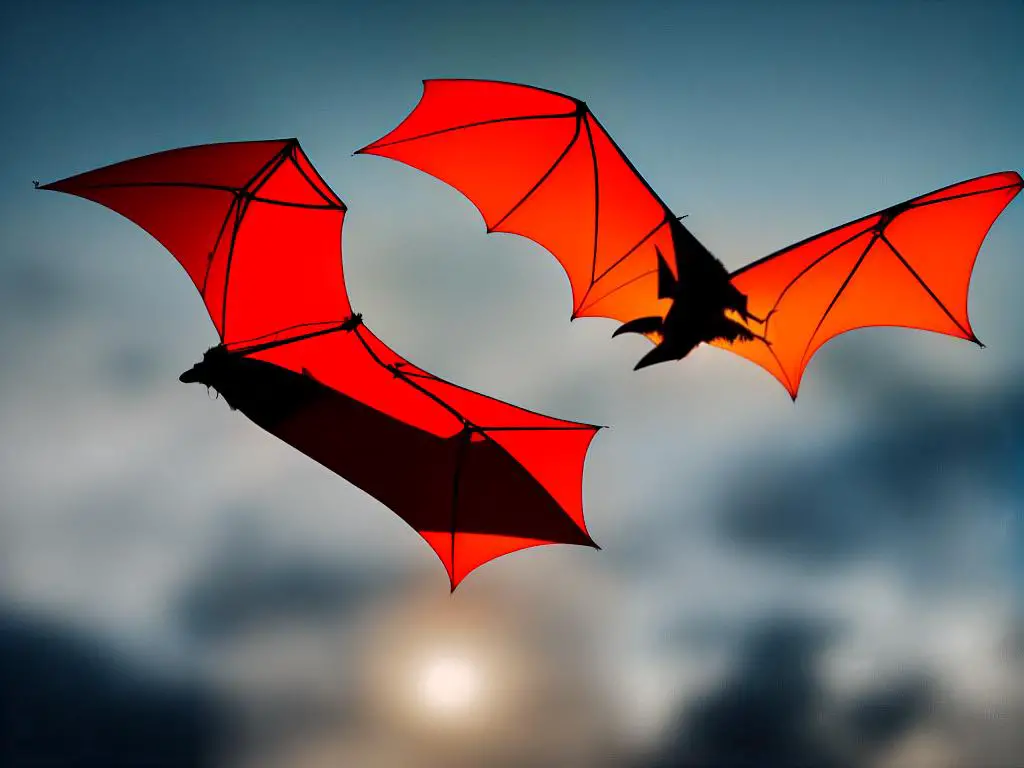
Dream Analysis and Bat Dreams in Modern Context
Examining dreams is an important way to better understand the subconscious mind, especially within different cultural contexts like Hinduism. Bats, as a symbol, can have multiple interpretations, and their appearance in dreams may be tied to various emotions, situations, or themes in a person’s waking life. Hinduism often holds the belief that dreams can carry significant messages, and understanding the connection between a bat in a dream and the dreamer’s life, beliefs, and emotions can provide valuable insight. Modern dream analysis uses both traditional interpretations and contemporary psychological methods to fully appreciate the symbolism and significance of bat dreams.
Understanding the cultural context of the dreamer and the bat’s symbolic meaning is essential when deciphering bat dreams. In Hinduism, bats are traditionally associated with knowledge and the exploration of mysteries, particularly those of the spiritual realm. The bat’s nocturnal nature aligns with the subconscious mind, which in Hinduism is believed to be a source of knowledge and insight about the deeper aspects of human nature. When a bat appears in a dream, it can be interpreted as a signal to explore one’s spirituality, develop self-awareness, or another aspect of personal growth. However, it is important to note that dream symbolism varies depending on the individual and their cultural context, and the meanings may evolve or adapt to fit the dreamer’s personal experiences.
Modern dream analysis focuses on not just the dream symbols themselves but the emotions and feelings that accompany them. In the case of a bat appearing in a dream, it is essential to examine the emotions felt during that dream – whether it’s fear, curiosity, or excitement. Many people tend to experience fear when dreaming of bats, as in western culture, they are typically associated with darkness, foreboding, or danger. For these individuals, the bat may represent daunting challenges or potential losses in waking life. In contrast, those who feel a sense of curiosity or intrigue about the bats in their dreams may need to embrace unexplored areas of their lives or consider confronting taboo topics.
A bat’s appearance in dreams may also suggest considerable change or transformation. Within Hinduism, bats symbolize cycles of nature, as they go through the process of metamorphosis, moving from darkness to light. Thus, a bat in a dream may indicate a significant shift in the dreamer’s life, such as personal growth or spiritual enlightenment. Contemporary dream analysis methods emphasize the importance of recognizing patterns and identifying how the symbol of the bat may offer guidance for the dreamer as they navigate these life transitions.
Furthermore, it’s essential to consider how bat dreams can be influenced by societal factors and current events. Dreams, after all, are a reflection of one’s psychological state, which is shaped by the world around them. So, it’s not uncommon for someone to dream of bats during an epidemic or a crisis related to bats, as it might be their subconscious mind trying to make sense of things or grappling with their fears or uncertainties. In such cases, exploring the context of the dream and examining potential factors influencing it becomes even more critical to understanding and interpreting them accurately.
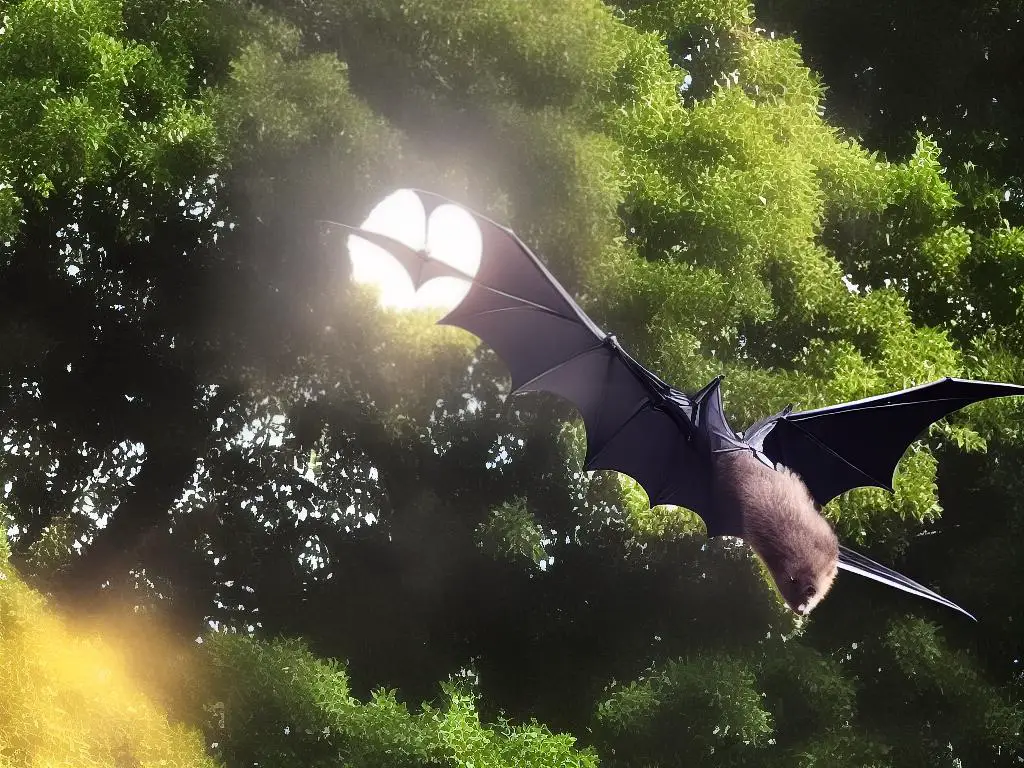
All elements considered, dreams involving bats in the context of Hinduism reflect a multifaceted tapestry of interpretations, deeply rooted in the culture’s beliefs and practices. While it is crucial to approach each dream with an open mind and consider individual circumstances and emotions, the symbolism of bats can reveal not only our hidden fears and emotions but also our path towards personal development and spiritual realization. As we navigate our modern world, understanding the intricacies of bat dreams and their connections to Hindu beliefs can ultimately serve as guidance for our inner growth and the discovery of our true selves.
